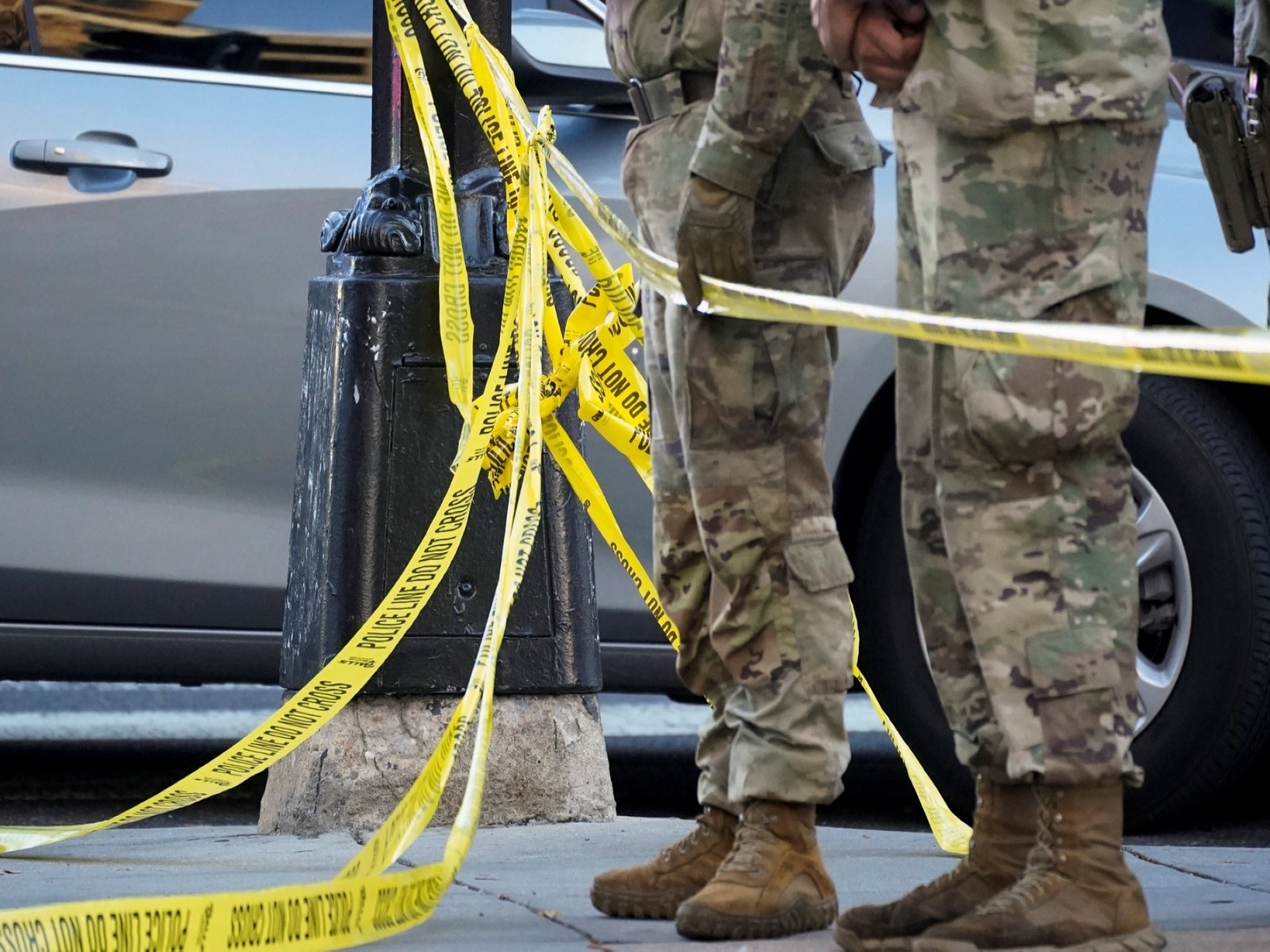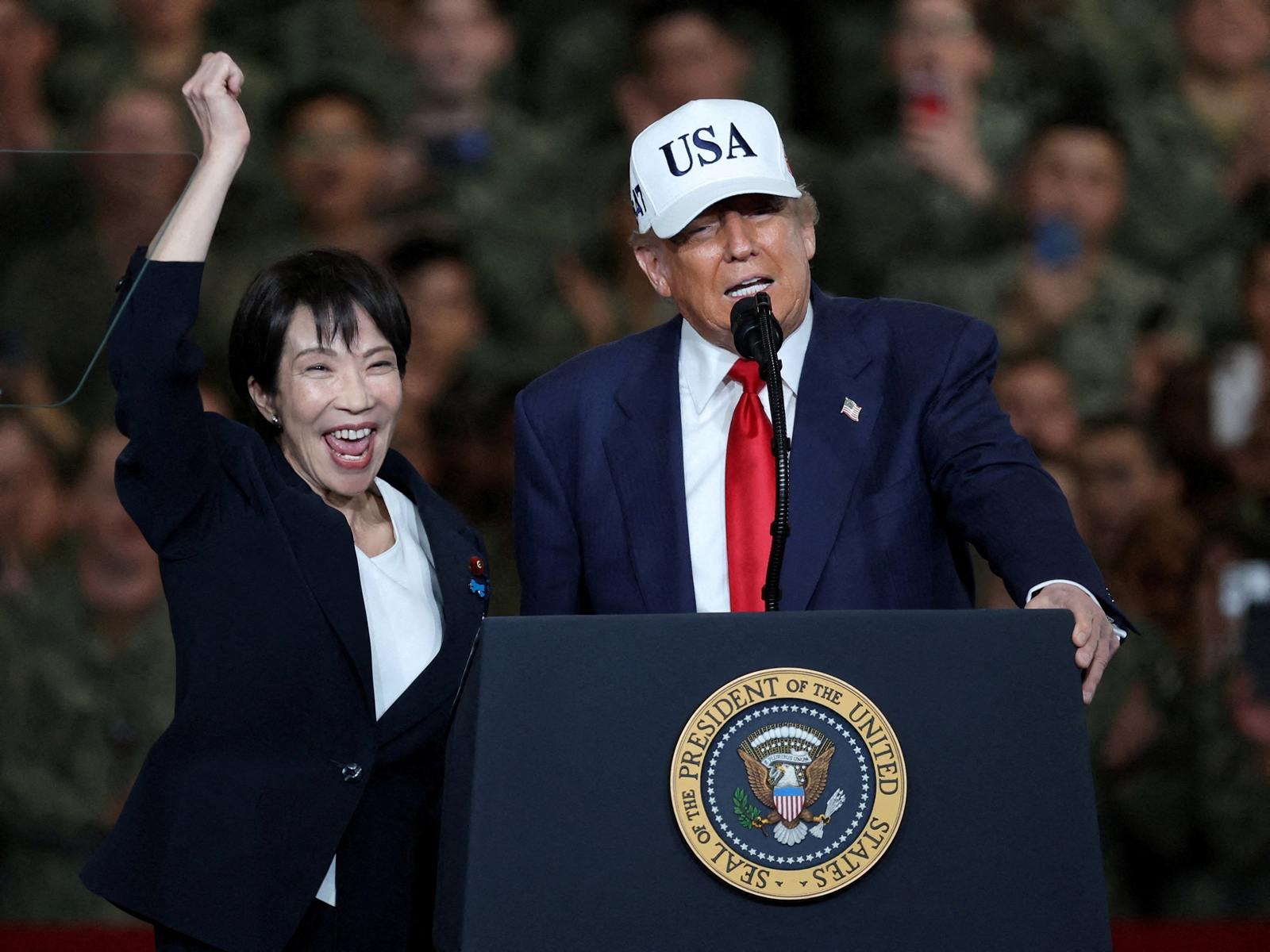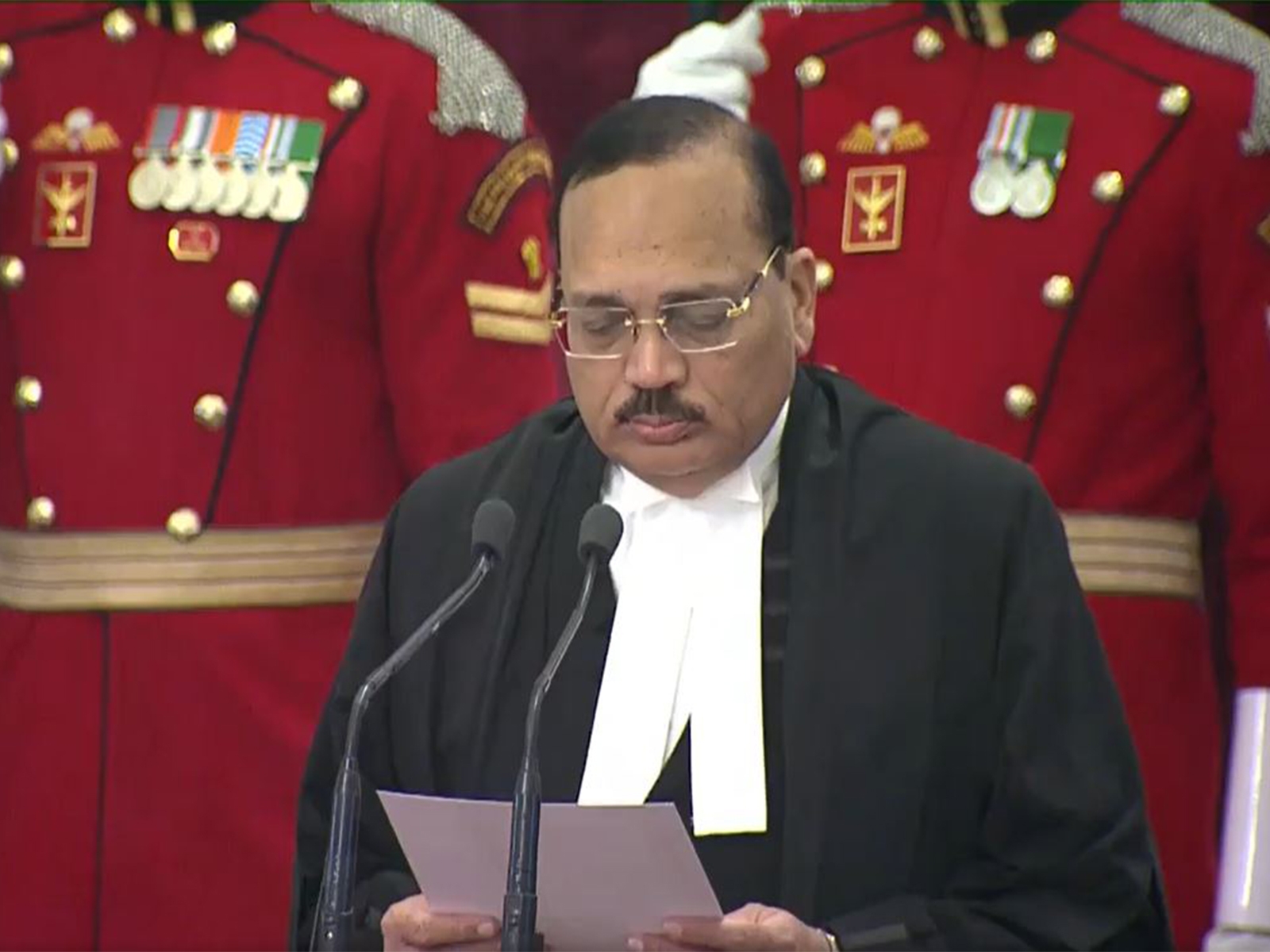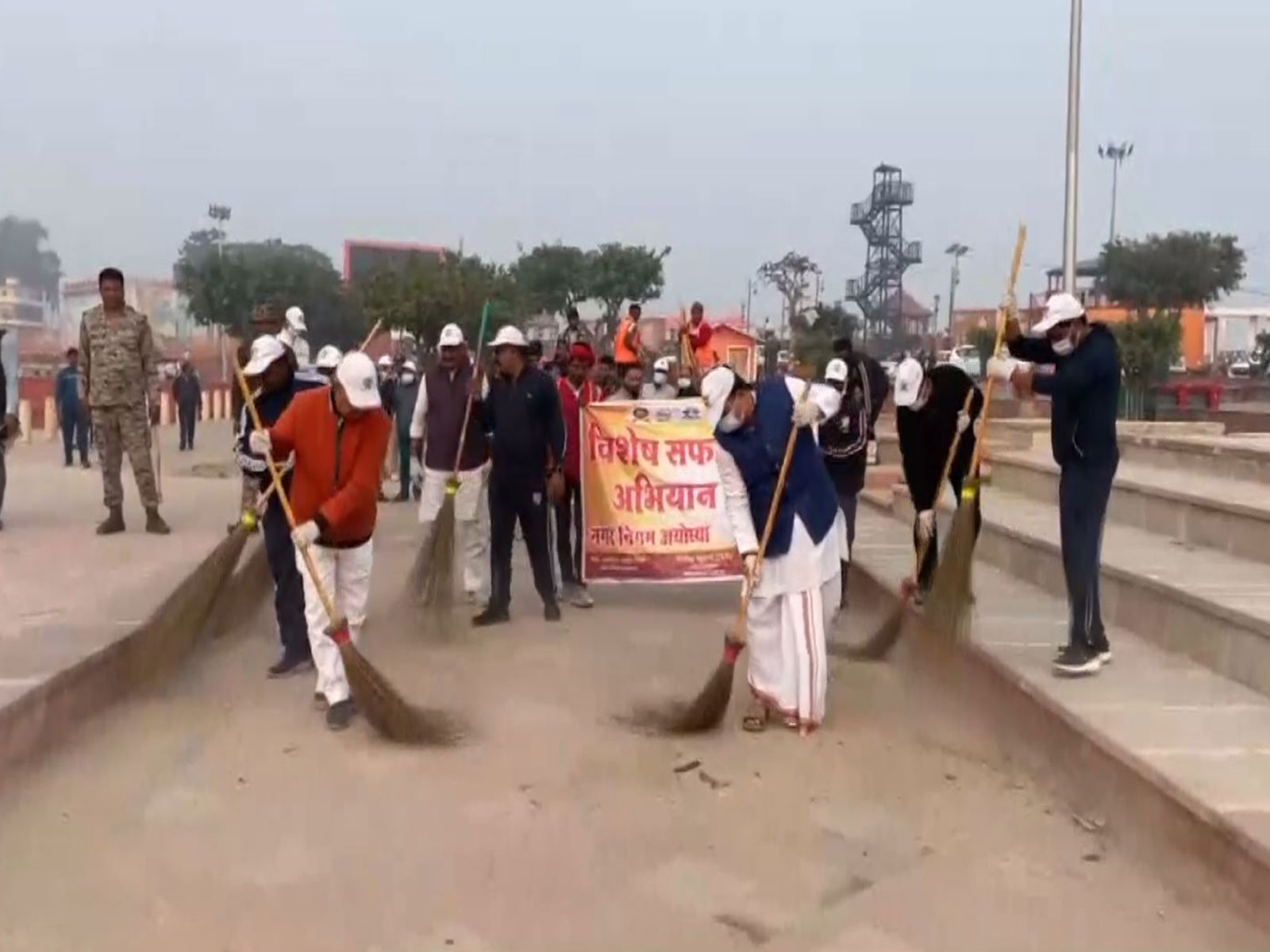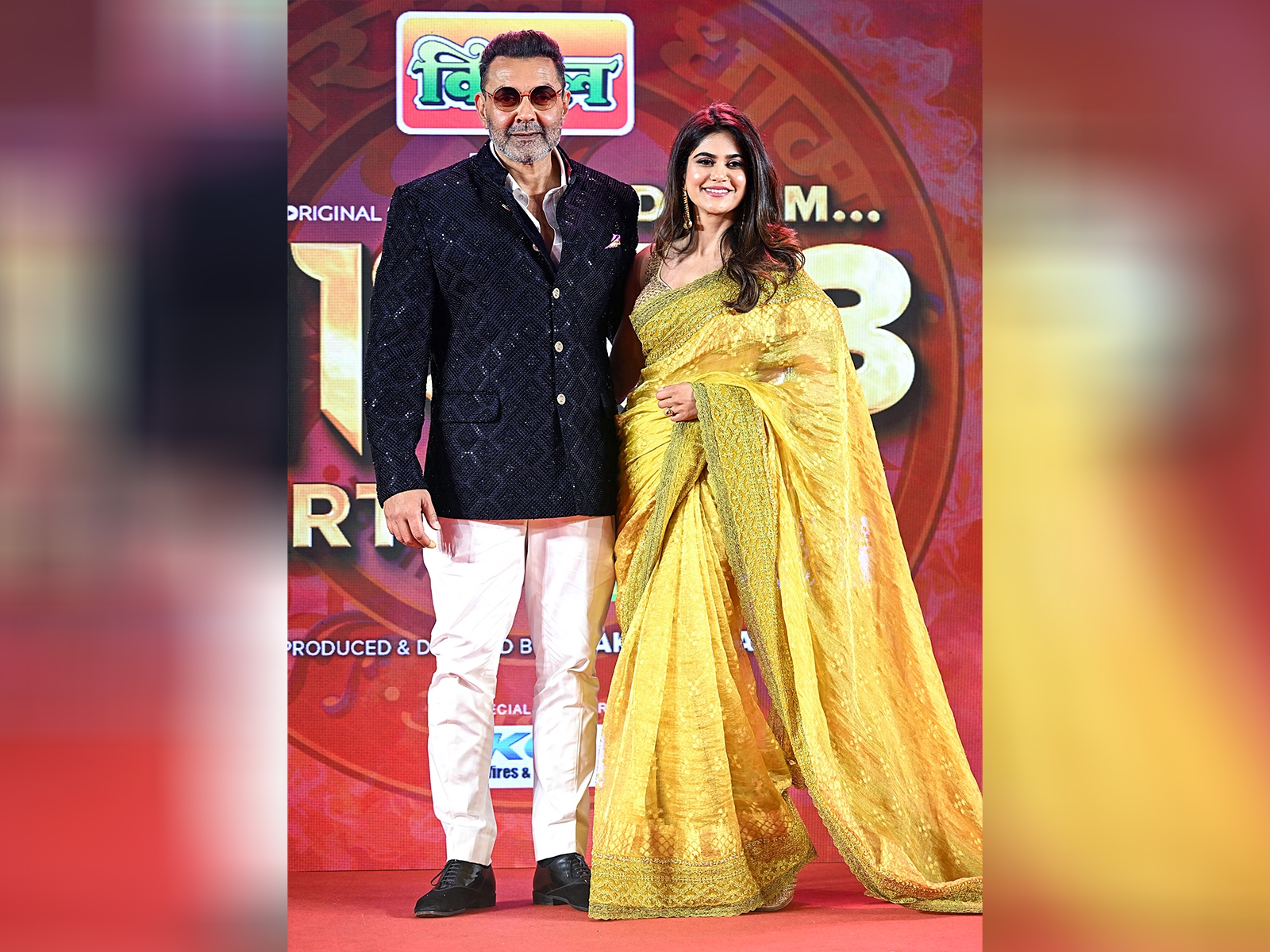Bangladesh executions: India needs to back Sheikh Hasina

The executions
- 2 former Bangladeshi ministers - Ali Ahsan Mohammad Mujahid and Salahuddin Quader Chowdhury - were executed on 22 November
- One was a member of Jamaat-e-Islami and the other an adviser to Khaleda Zia
The implications
- Human rights organisations have condemned Bangladesh\'s tribunal for 1971 war crimes
- The more serious fallout would be an Islamist backlash against Sheikh Hasina and her governments
More in the story
- Is Sheikh Hasina in danger?
- Is ISIS targetting Bangladesh?
- What should India do?
Bangladesh's persistent attempts to punish Pakistani and Bangladeshi war criminals began soon after the country became independent in 1971. The effort to punish 195 identified Pakistani war criminals was given up after the Tripartite Agreement in 1974. The Agreement led to Pakistan's recognition of Bangladesh and its entry into the Organisation of Islamic Cooperation (OIC).
Bangladesh signed away its right to put on trial Pakistanis identified for committing genocide during the country's War of Liberation in 1971. Pakistani prisoners of war and 195 identified war criminals among them, escaped punishment for the worst genocide in the latter half of the 20th century.
The tribunal
The effort to put on trial Bangladeshi collaborators of genocide got buried after Bangabandhu Sheikh Mujibur Rehman, Sheikh Hasina's father, was assassinated by disgruntled army officers in 1975 and pro-Pakistani governments came to power. These governments colluded with the collaborators for political power.
Prime Minister Hasina and her sister Rehana both survived the assassination which wiped out the rest of the family. Since then the Hasina-led Awami League (AL) has suspected the hand of Pakistan and its partner and ally, the USA, in the conspiracy to murder Bangabandhu and the promotion of promote pro-Pakistani and anti-Liberation forces for their geo-political interests.
After returning to power after in 2008, Hasina set up the special war crimes tribunal. The Awami League had promised to do so in its manifesto for the 2008 elections. This move received wide public support from the Ganajagaran Mancha, a movement of tens of thousands of young Bangladeshis who demanded that the trial of those accused of murder, rape and torture in 1971, should not be ignored. This demand received countrywide support.
The war crimes trials have had their share of controversies with accusations that the trials were unfair and did not meet international legal norms. This was expected as the accused used their pan-Islamic connections and considerable financial resources to mount an international campaign to destroy the credibility of the war crimes tribunal.
The tribunal has also faced flak from Western human rights organisations, though not directly from Western governments. The latter have been more circumspect and have couched their reaction in terms of maintaining proper legal standards, knowing that trials have wide public support. Western nations, particularly the USA, has been seen in Bangladesh as being supportive of Pakistan and having condoned the genocide for geo-political reasons.
The recent executions
In the recent round of executions, two former Bangladeshi ministers, one a member of the Islamist Jamaat-e-Islami (JeI), and the other a member of the Begum Khaleda Zia-led Bangladesh Nationalist Party (BNP), were executed by hanging, early morning on 22 November.
Mujahid was the secretary-general of the Jamaat and Chowdhury was an adviser to Khaleda Zia
Ali Ahsan Mohammad Mujahid was the Secretary-General of the JeI and Salahuddin Quader Chowdhury, was an Adviser to Khaleda. Chowdhury was known as the butcher of Chittagong and Mujahid was the commander of Al-Badr, a group which achieved notoriety for the murderer of intellectuals.
This happened towards the end of Bangladesh's war of liberation in 1971, when Pakistanis and their collaborators decided to eliminate the fledgling nation's intellectuals, to deprive the new nation of its precious human resource.
JeI leaders and Chowdhury participated in the genocide of ordinary people, intellectuals and those fighting to throw out the Pakistani oppressors. Around 3 million people died in the genocide, over 400,000 women and children were raped and 10 million refugees fled to India.
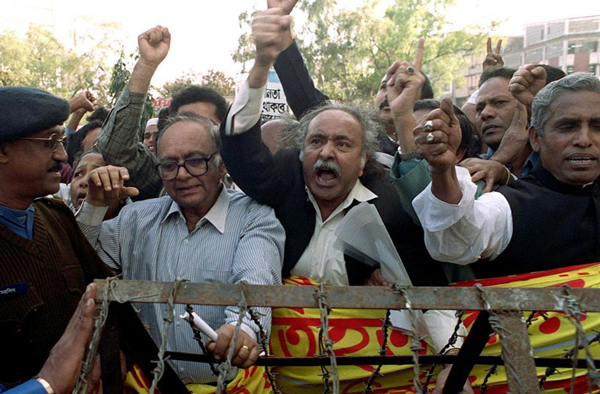
Photo: Jewel Samad/AFP
The minority Hindu community bore the brunt of the genocidal attacks and torture by the Pakistani army and its collaborators, known as Razakars who were organised into killer gangs with names like Al-Badr and As-Shams. The JeI has mounted a strong lobbying campaign in the West and Islamic countries to destroy the credibility of the Tribunal, adopting legal and technical arguments.
The death sentences, for instance has been opposed by European human rights organisations since the EU has abolished the death penalty. The BNP has called the Tribunal an act of political vendetta. Bangladesh has, so far, executed four convicted war criminals and sent some others to life imprisonment. Except Chowdhury, all the others are from the JeI.
The Office of the UN human rights commissioner held a press briefing questioning the fairness of the trials and calling for the abolishing of the death penalty. Bangladesh reacted by sending a protest note. But it should not worry too much since the UN has been reduced to making statements, since there is precious little it can do otherwise.
The UN Human Rights Council recently became a laughing stock when Saudi Arabia was made chair of a human rights panel tasked to interview candidates. Saudi Arabia's human rights record is widely regarded as the worst in the world.
Predictably, the executions have caused friction between Bangladesh and Pakistan. This time too, Bangladesh has reacted with anger at the gratuitous official statement issued by the Pakistani Foreign Ministry. Pakistan has watched its constituency in Bangladesh eroding under the Hasina government and is clearly angry that its supporters and agents in Bangladesh are being eliminated.
In its long pursuit of a hostile policy against India, Pakistan has consistently sought to operate via India's neighbours to insert terrorists, help anti-Indian insurgents and funnel fake Indian currency into India. In Bangladesh it has tried to do this using pro Pakistani Islamists, BNP and its sympathisers in government agencies. It has felt thwarted by the Hasina government which has cracked down on such activities.
Possible backlash
Bangladesh remains on high alert and is in the grip of a huge security clampdown. Social media and blogging sites have been blocked. There is apprehension that the Islamists and their cadres will strike back. The JeI has called for a hartal to protest against the executions. Islamists have a long history of unleashing violence in the streets.
Bangladesh is in the grip of a security clampdown. Social media and blogging sites have been blocked
Suspected Islamist killers have murdered selected foreigners, secular bloggers and their publishers in the last few months. A Shia procession was also bombed causing multiple casualties. The Islamic State (IS) has claimed "credit" for these attacks. The IS, in its online mouthpiece Dabiq, has claimed that Bangladesh is now a target for expanding their activities.
Hasina has emerged as a mature and courageous leader, willing to take bold decisions. This includes her decision to cooperate by handing over Indian insurgent leaders using Bangladesh as a sanctuary. Hasina will no doubt be targeted by the extremist Islamists and pro-Pakistani elements. Her security should be a matter of concern for India, as would be the growth of radical Islam in Bangladesh.
Hasina is likely to be targeted by extremists. Her security should be a matter of concern for India
The two governments must coordinate their security, intelligence gathering and exchange of real time information, if the challenge of radical Islam and terrorism has to be confronted in our region. India has already indicated that it will oppose any attempt to vilify Bangladesh in any international forum on the issue of the war crimes tribunal and the executions.
First published: 27 November 2015, 8:51 IST
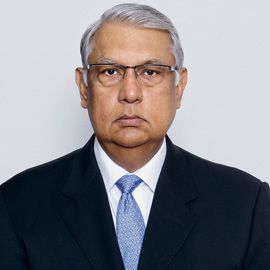





![BJP's Kapil Mishra recreates Shankar Mahadevan’s ‘Breathless’ song to highlight Delhi pollution [WATCH] BJP's Kapil Mishra recreates Shankar Mahadevan’s ‘Breathless’ song to highlight Delhi pollution [WATCH]](https://images.catchnews.com/upload/2022/11/03/kapil-mishra_240884_300x172.png)

![Anupam Kher shares pictures of his toned body on 67th birthday [MUST SEE] Anupam Kher shares pictures of his toned body on 67th birthday [MUST SEE]](https://images.catchnews.com/upload/2022/03/07/Anupam_kher_231145_300x172.jpg)


